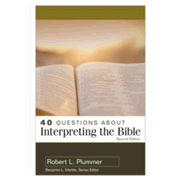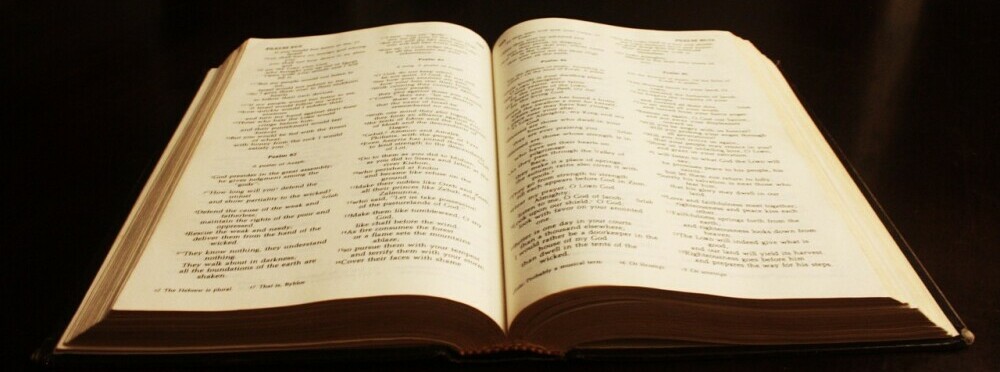
I’m going to kick things off with a fundamental truth: the Bible isn’t just a book, it’s a library. A library packed with various genres, each with its unique style, purpose, and historical context. This isn’t just about poetry or narrative; it’s also about laws, prophecies, and letters. To truly grasp the messages embedded within the Bible, you’re going to find out about these genres and why they’re crucial to understanding the ancient texts.
Genre matters in reading the Bible. It is critical to understanding the context. Let me show you what I mean. Imagine you’re reading a piece of satire but take it as historical fact, or you’re interpreting a poetic metaphor literally. It would be like reading The Great Gatsby as a historical account or the biography of Abraham Lincoln as fiction. That strategy lends to misunderstanding the intent behind the writing. Identifying whether you’re reading history, poetry, prophecy, or epistle can drastically alter the meaning you extract from the scripture. If you are not careful, you will risk misunderstanding the Bible’s intent without a grasp of its genres.
The Bible is rich with historical accounts, legal instructions, emotional psalms, proverbial wisdom, and visionary prophecy. Each genre is like a different instrument in an orchestra, contributing its unique sound to an overall symphony of divine revelation. Just like understanding the genius of a symphony requires embracing the beauty of each instrument, understanding the genius of the Bible requires embracing the beauty each genre brings to the symphony of scripture.
Familiarizing yourself with biblical genres will enhance your reading experience. Don’t worry too much about becoming a biblical scholar overnight (that’s impossible anyway). Instead, choose something that resonates with you, whether it’s the passionate expressiveness of the Psalms or the storytelling drama of narrative, and start there. A lot is happening very quickly in each book of the Bible. I’m here to help you navigate this diversity of literature, setting you up to flow seamlessly into the historical and legal compilations.
Here is a simple overview of the major genres of the Bible:

We will briefly explore the features of each one.
Exploring the Historical and Legal Genres of the Bible

I’m going to walk you through the fascinating historical and legal texts embedded within the Bible. This isn’t just about ancient events and rules; it’s also about the formative stories and commandments that have shaped a significant part of world culture.
Historical books, such as those from Genesis to Esther, chronicle the journey of the people of Israel. You’re going to find out about monumental figures like Abraham, Moses, and David, and pivotal moments like the Exodus and the Babylonian Exile. Historical books feature the same elements of other narratives. You will find the setting, plot, conflict, rising action, climax, and resolution. Narrative accounts for nearly half of the Bible’s contents and is the easiest to detect. Storytelling is hardwired into our being.
The Torah, the first five books, stands as the cornerstone of legal literature in the Bible. It’s not solely a set of laws but also provides narratives underpinning Jewish and Christian ethics. So the law is set against the backdrop of the historical narrative of the Israelite people. The most important feature of the law is that God is its author. This legal code covers a multitude of topics including religious rituals, ethical conduct, social justice, civil regulations, dietary restrictions, cleanliness, and personal morality. They aim to govern every aspect of the Israelites’ lives, providing guidelines for both personal and communal behavior.
Understanding the intersection of context and culture in these writings isn’t just an academic exercise. It deeply influences how these texts are interpreted and appreciated.
If you’re keen to dive deeper, discovering the historical settings, cultural norms, and linguistic nuances will dramatically enrich your perception of these ancient texts. Choose to approach them not only as historical or legal documents but as part of a larger, intricate conversation across generations.
The Poetry and Wisdom Literature of the Bible: Songs, Proverbs, and Lament

Let’s talk about the beautiful intricacies of biblical poetry and wisdom literature. Most people quickly recognize that the Bible isn’t just a collection of commands and stories; it’s also a rich compendium of poetry and proverbs that offer profound insights into life and spirituality.
Diving into the book of Psalms, you’ll encounter songs that express every human emotion, from deep despair to exuberant joy. These aren’t merely ancient words; they resonate deeply with the human experience today. Similarly, the Song of Songs, a unique book, uses poetic language to celebrate love and, many believe, to illustrate the relationship between God and His people.
Moving on to wisdom literature, books like Proverbs and Ecclesiastes are filled with short sayings that are at times practical, and at other times philosophical. These pieces of wisdom often provide guidance on how to live a good life, make wise choices, and understand the complex world around us. It’s fascinating how these ancient texts still apply to our lives centuries later.
As you delve into these genres, appreciate their literary beauty, but also seek to gain practical wisdom applicable to daily life. And when you start looking at the prophetic voices and apocalyptic visions in the next section, you’ll see how understanding poetry and wisdom literature provides a foundation to better grasp other complex biblical genres.
You will notice in the chart above that Lamentations is under the prophetic/apocalyptic column. It is tightly connected to the book of Jeremiah and exhibits a similar prophetic style, but it is also a lament, making it difficult to place it in a single category. What you also find when examining the Psalms is that lament is a part of the genre of poetry as well. Some of the psalms show the author pouring his heart out before God, even angrily. When this occurs, we the readers should give pause to interpreting lament in the same way we would interpret other poetry or prophecy.
Prophetic Voices and Apocalyptic Visions: Navigating the Prophetic Literature
Perhaps the most difficult and puzzling genre of biblical literature is the realm of biblical prophecy and apocalyptic literature. This is where we grapple with the writings of individuals who were not only spiritual heavyweights but also social commentators in their time. They were the prophets.
Now, what we see in the prophetic books like Isaiah, Jeremiah, and the twelve minor prophets, is a blend of warning, hope, and vision. Their prophecies spoke to the heart of Israel’s spiritual journey, highlighting both the pitfalls of disobedience and the hope for restoration.
But there’s something utterly fascinating about apocalyptic literature – texts such as Daniel and Revelation. These parts of the Bible are rife with symbolism, images of beasts, angels, and visions of the end times. It’s like unlocking a code to understand the divine plan.
We can learn a great deal from these prophets. They remind us to live with integrity, justice, and a sense of responsibility towards ourselves and our communities. Their voices echo through the ages, speaking truth into our modern world, just as they did centuries ago. Yet, interpreting these texts requires careful study; the symbolism isn’t always clear-cut, and historical context is everything. Remember, your first attempt at understanding these complex narratives doesn’t need to be your last.
In the apocalyptic, we’re not just looking at predictions of the future; we’re also seeing a reflection of the struggles and hopes of ancient peoples. These visions provided comfort and a promise of divine justice during tumultuous times.
In my opinion, spending time with these genres is more than an academic exercise; it’s a form of spiritual enrichment. They provide a glimpse into the minds of those who sought to define and direct faith in times of crisis, and they challenge us to think deeply about the personal and societal implications of our beliefs today.
I really hope that you find as much value in exploring the prophetic and apocalyptic texts of the Bible as many have throughout history. These genres aren’t just relics; they are active, living words that continue to shape the way we see the world and our place in it.
If you would like to dive further into biblical interpretation, we will cover specifics as we look closer at each book of the Bible. I have also found 40 Questions About Interpreting the Bible by Robert Plummer to be an excellent resource. It seeks to strike a balance between simplicity and scholarly language. In the introduction, he writes,
“Ideally, this book will serve as a textbook for an introductory Bible course at a college or seminary, but I endeavored to write so that the book will be beneficial to any curious Christian. My goal was to be accessible without being simplistic and scholarly without being pedantic, while always keeping an eye to practical questions and real-life application by the Christian reader.”
If you would like a copy of this resource, you will find a link below.
 |
40 Questions About Interpreting the Bible, 2nd Edition By Robert L. Plummer / Kregel Academic & Professional |

